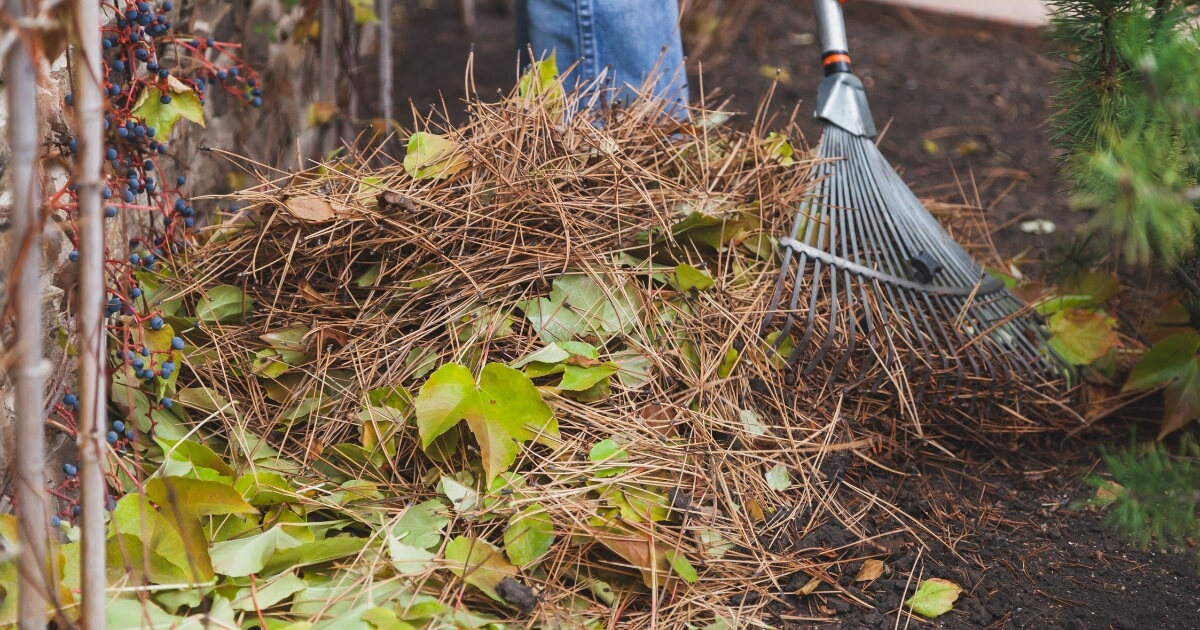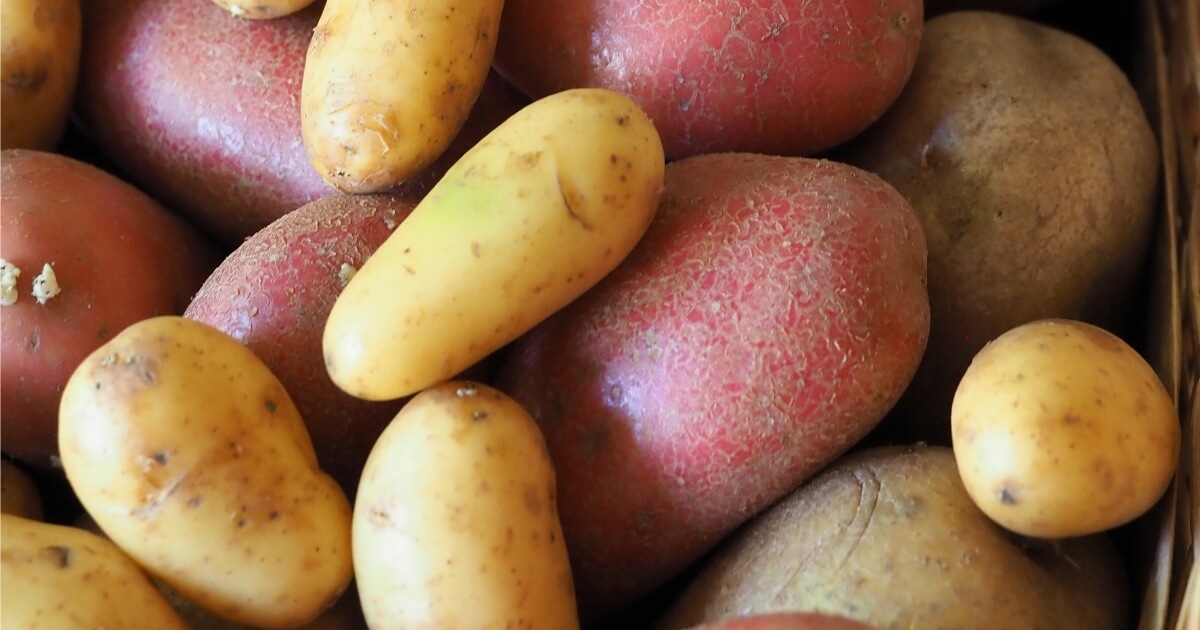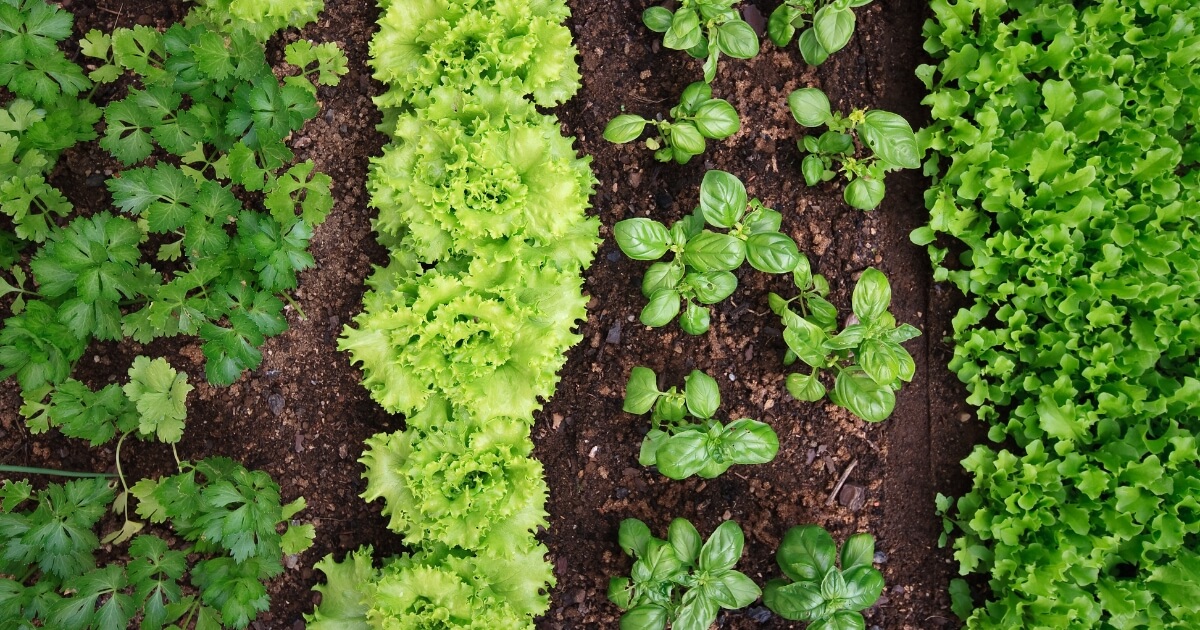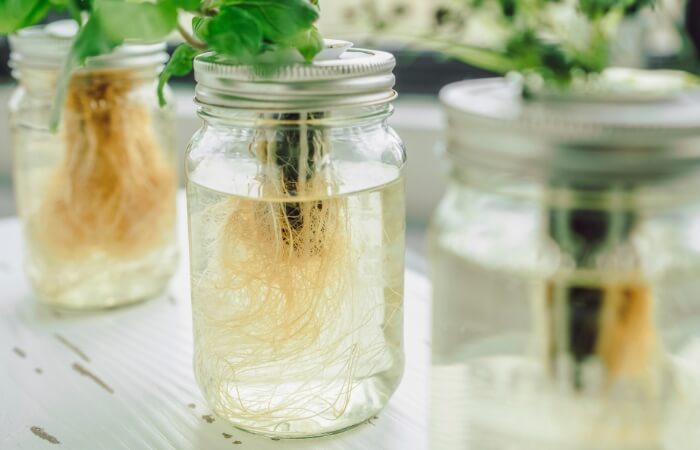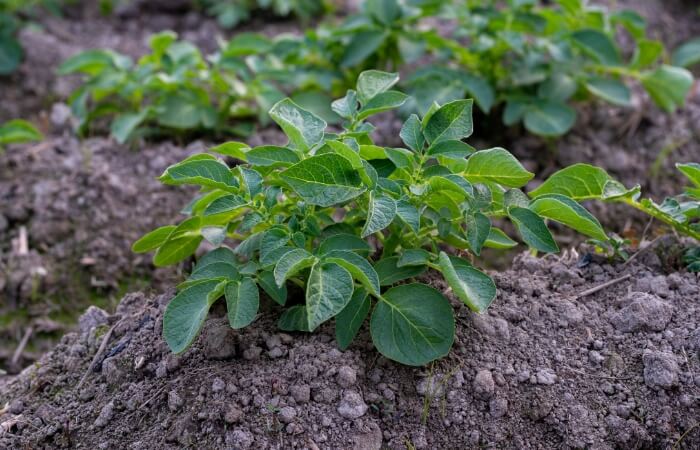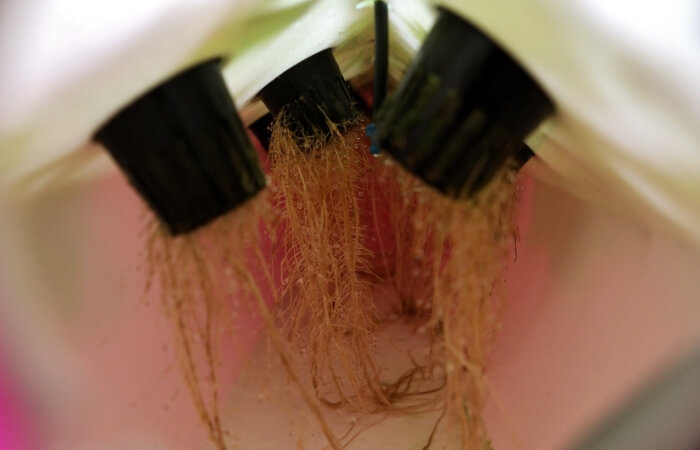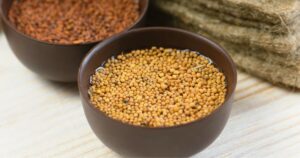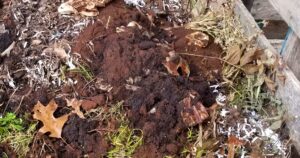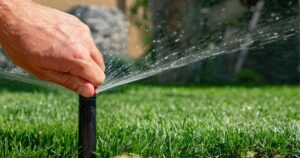Rock phosphate fertilizer is a fantastic soil amendment that builds an ideal soil micro-environment so your plants can utilize all the nutrients within most effectively.
Using this safe and natural product will boost the beauty and abundance of all your garden plants, as well as your lawn and trees.
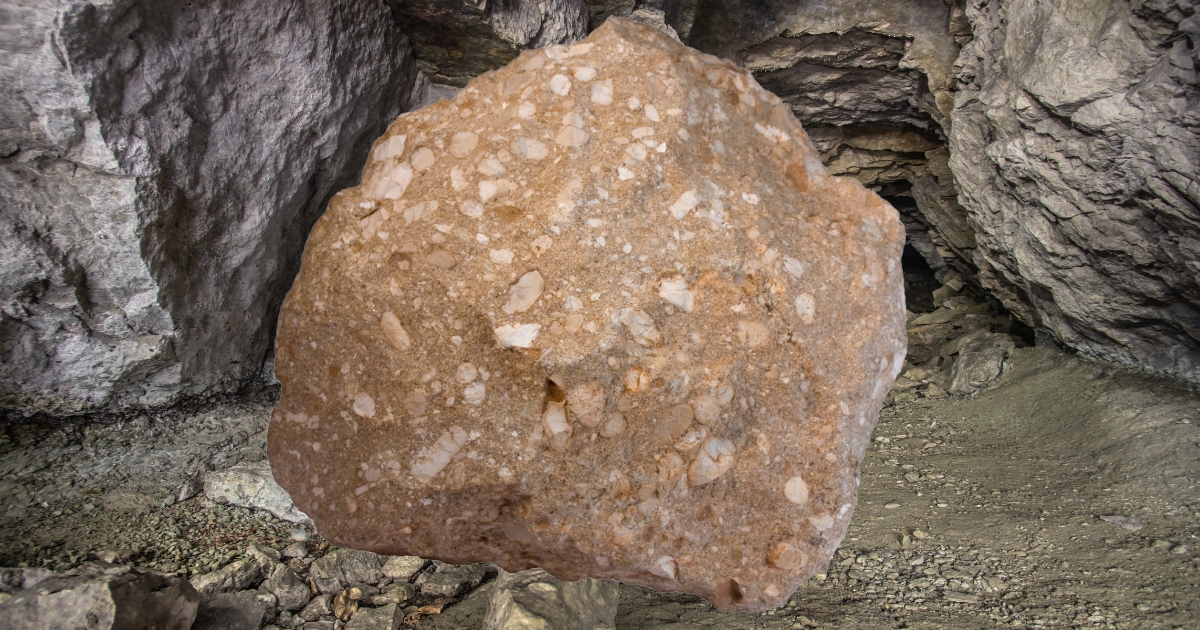
I’ll teach you everything I know about rock phosphate fertilizer in this article. I’ll explain the fertilizer’s origins, what it does for your plants, and how to use it for optimal results in your garden!
What Is Rock Phosphate Fertilizer?
Phosphorite, better known as rock phosphate, is an organic mineral mined from sedimentary deposits along coastal areas. It’s used in gardening to control certain aspects of plant growth and health that are impossible with general all-purpose plant fertilizers.
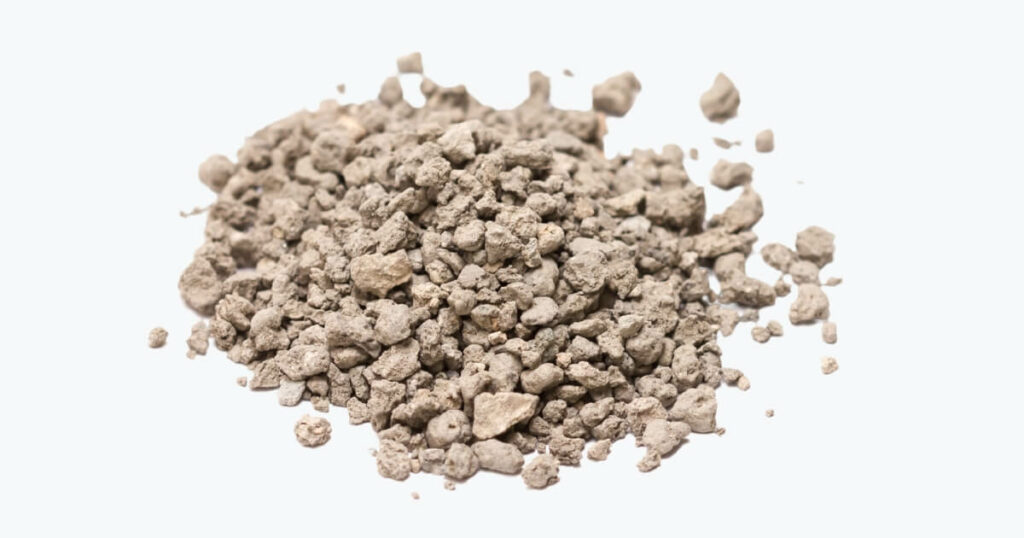
The clay-like rock is full of phosphorus and calcium from oceanic creatures’ remains left behind during upwellings of marine waters. You might come across this fertilizer as rock dust in some areas.
While once used as a stand-alone ingredient for gardens, its current supply is lacking, leading many companies to mix other ingredients into the fertilizer.
Make sure you read content labels closely to ensure you purchase a pure product, especially if you’re organic gardening. Pure rock phosphate fertilizer provides a simple boost of natural phosphorus, calcium, and nothing else.
The fertilizer comes in both dry and liquid formulations so that you can tailor the application to your needs.
What Does Rock Phosphate Do For Plants?
The benefits of rock phosphate on plants include:
- Delivering a natural form of calcium, phosphate, and trace minerals to your soil
- Works with your soil to improve the nutrient uptake of plants
- Balancing delivery of nutrients throughout the growing season
- Encouraging new plant growth
- More budding, which means more flowers or vegetables per plant
- Better root development for trees and grass
- Improving the flavor of vegetable and fruit crops
- Deterring soil pests
Rock phosphate fertilizer is slow-release and an ideal way to keep soil calcium levels from getting too low during the growing season so your plants can continue to flourish.
This organic fertilizer also works in tandem with soil microbes and not against them. The trace elements in the rock phosphate help your soil microbes to break down all organic compounds, which keeps a constant nutrient flow to your plant roots.
Synthetic chemical fertilizers can cause salt build-up in your soil that prevents proper root function and contributes to acidity from excessive amounts of nitrogen. Both issues are harmful to plant development and can lead to death.
Well-functioning soil promotes healthy root growth and deters pests, so your garden looks better overall.
With such benefits, you should put rock phosphate fertilizer on your shopping list now so your spring garden starts with a bang!
Rock Phosphate Fertilizer Uses
You should use rock phosphate fertilizers any time you wish to keep calcium levels up, so plants have this critical nutrient that keeps cell walls firm. The phosphorus builds a strong root structure in young plants and helps transfer energy within the plant as it grows.
- You can mix the fertilizer with compost for even better long-term results in soil improvement.
- You should add rock phosphate when you notice plants are not growing as large as they should.
- You should distribute the fertilizer in perennial gardens at the start of the season to encourage lush foliage and tons of blooms.
Roses love rock phosphate fertilizer and produce tons of long-lasting flowers from the boost of essential minerals.
Another great place to use rock phosphate fertilizer is over your yard, mainly during grass seeding and the first few seasons, so that the roots can spread and support a thick, healthy lawn.
However, you should sometimes avoid using rock phosphate in your garden.
Rock phosphate performs more efficiently when soil pH conditions are under 5.5, so you should test your soil with a meter before adding it.
If your soil pH is high, phosphorus has trouble dissolving in water. This fertilizer needs acidic soil or will sit in the ground and not be available to plants. To aid in phosphorus release from the fertilizer, you can mix it with compost or add a mycorrhizal inoculant.
You should also not use rock phosphate fertilizer if your runoff leads to a nearby water source, which could lead to harmful algae blooms. Luckily, rock phosphate tends to bind to your soil, reducing the chance of leaching away before plants can utilize the minerals.
Adding Rock Phosphate To Your Plants
The best time to apply rock phosphate to your garden soil is before you plant in the spring or fall. The fertilizer takes much longer to break down than synthetic, so it needs more time in your soil.
Always ensure your soil acidity is at the proper level before adding the fertilizer to avoid waste.
- For small applications, follow the recommendation on the product packaging. Generally, the ratio is to use two tablespoons per gallon of soil.
- For large applications, such as covering a lawn or garden plot, spread 10 pounds of granules per 100 square feet and till or rake the material into the top six inches of soil.
- For soils highly lacking in phosphoric acid, increase the amount up to 50 pounds of fertilizer per 100 square feet.
- For greenhouses and seed starting, a liquid form of rock phosphate may be easier to work into your soil. Since root growth will explode when using rock phosphate fertilizer, keep a close eye on your seedlings to avoid issues with plants becoming root-bound.
- For citrus and apple trees, directly apply a powdered form of rock phosphate to your soil around the plant as wide as the branches spread.

